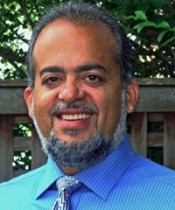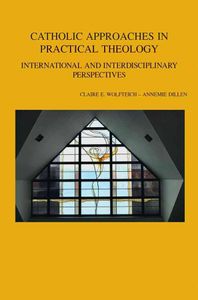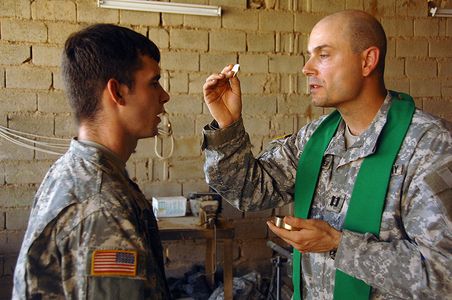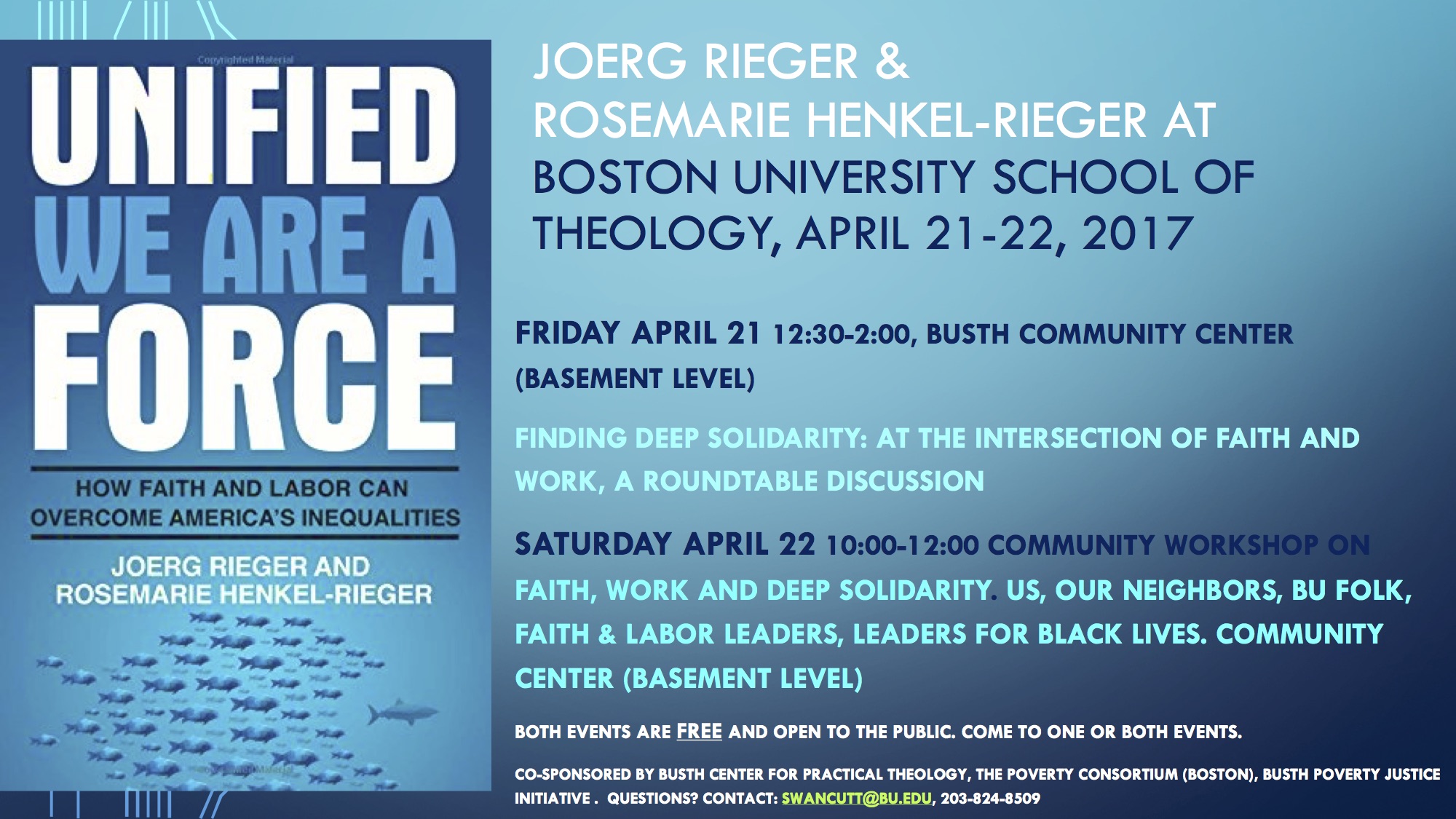Save the Date for the 9th Annual Center for Practical Theology Lecture!
You are warmly invited to
The Center for Practical Theology
9th Annual Lecture and Reception
Dean Bryan Stone will deliver the lecture on the topic of
“Evangelism, Religious Pluralism,
and the U.S. Military Chaplaincy”
Wednesday, October 12th, 2016
5:30 pm – 8:30 pm
Boston University School of Theology Community Center
(Lower level of School of Theology, located at 745 Comm. Ave, Boston, MA)
Reception begins at 5:30pm, with the lecture to follow.
Heavy hors d’oeuvres and drinks served.
Please email cpt@bu.edu with any questions.
We hope to see you there!
Call for Submissions to Practical Matters
Call for Submissions to Practical Matters
Issue 11: Migrations
Deadline: October 1, 2017
Practical Matters is now accepting submissions on religious practices and practical theology for Issue 11. The journal will feature articles on the theme of “Migrations.” You can follow this link for the Call for Papers. Founded in 2007, Practical Matters is a cutting edge project in digital publishing funded by the Lilly Endowment and sponsored by the Initiative in Religious Practices and Practical Theology at Emory University.
In the last thirty years, theoretical frameworks across disciplines have emphasized mobility over more static conceptions of place. New metaphors of displacement, border crossings, nomads, transculturalism, diaspora, and migration reflect a world in motion. People are moving across distances both great and small as immigrants, political or economic refugees, and seasonal or temporary laborers. These individuals migrate with objects, practices, beliefs, theories, and cultures. In the midst of this motion, religion shapes and is shaped by these migrants, the places they have left behind, and the ones they enter into.
Potential topics may include but are not limited to: religious practices created or used by migrating individuals and communities, the movement of religious practices themselves, the role of religion in local as well as global migrations, religious practices across local, national, and religious borders, and the work of religious institutions in the refugee crisis religion as a source of agency for migrants.
Practical Matters continues to seek submissions that promote the dialogue between religious studies and practical theology through scholarship on religious traditions as embodied in religious practices, methods for engaging research questions that emerge in and about religious communities, theories of practice and praxis, and structures of scholarship that allow for more robust interactions between academic institutions and religious practitioners. We invite contributions on or from any religious or spiritual tradition as well as from any theoretical position or discipline. The journal includes both peer-reviewed articles (Features and Analyzing Matters) as well as non-peer reviewed content that presents the thoughtful reflections of teachers and practitioners (Practicing Matters and Teaching Matters). Practical Matters accepts submissions that incorporate a variety of media and genres.
For any additional information, please contact with the Issue Editor Eunil David Cho at pm.issue.editor@emory.edu.
Practical Matters Journal Website: http://practicalmattersjournal.org/
Dr. Stephanie Arel publishes Affect Theory, Shame, and Christian Formation
 We are excited to announce that Dr. Stephanie Arel (STH Practical Theology '14) has been named as an Andrew W. Mellon Postdoctoral Fellow at The National September 11 Memorial & Museum and Visiting Scholar at New York University. Dr. Arel is the co-editor, along with Dr. Shelly Rambo, of Post-Traumatic Public Theology, and she has recently published Affect Theory, Shame, and Christian Formation. Here, she shares more about her research, including what influences her interdisciplinary approach and why embodiment matters in practical theology.
We are excited to announce that Dr. Stephanie Arel (STH Practical Theology '14) has been named as an Andrew W. Mellon Postdoctoral Fellow at The National September 11 Memorial & Museum and Visiting Scholar at New York University. Dr. Arel is the co-editor, along with Dr. Shelly Rambo, of Post-Traumatic Public Theology, and she has recently published Affect Theory, Shame, and Christian Formation. Here, she shares more about her research, including what influences her interdisciplinary approach and why embodiment matters in practical theology.
1.What inspired you to engage Christian tradition and practice through the affect of shame?
In March of 2011, at a symposium on trauma, healing, and spirituality in Belfast, Ireland, I spoke about shame in the context of war, addressing the experiences of women survivors of rape during the Rwandan genocide, US soldiers returning from war with PTSD symptoms, and cultures, like those in Belfast and Bosnia, steeped in war and violence. The presentation asserted that theology has a responsibility to examine how the church talks about shame, guilt, and sin to help survivors of war trauma attend to their wounds. Afterwards, questions and stories about guilt, shame, and the role of theology in war proliferated. Two priests from Belfast and a therapist of African victims of torture shared about deep wounds suffered in war, urging me to continue to explore the affective impact of shame. They pressed the need for shame to be discussed more openly in theological circles, especially those that employ practices of care.
-
Your work is very interdisciplinary, drawing from psychology, literary theory, trauma studies and affect theory. How do you understand this interdisciplinary approach to enhance your practical theological perspective?
If we assume that practical theology constructs a bridge between theological learning and reflection on the one hand and the actual experiences or practices of Christian communities on the other, then we need tools to build, change, or improve that bridge. I see other disciplines as tools that offer methodological variety with which to approach reflection on religious practice thereby enhancing the depth of interpretation related to how praxis reflects particular theologies. Construction of new ideas through insights from other disciplines occurs alongside integration of academic schools of thought in the pursuit of a common goal. In my research, I combine the perspectives of two or more fields to enrich my understanding of religious practice while highlighting how religion undulates in modern thought and behavior.
-
You write that a focus on affect engenders “shame’s impact on the Christian self as fully embodied” and that the body is the “affective center of life” (24). This turn to the materiality and experience of the body is crucial for practical theologians. What possibilities do you see for exploring the impacts of other affects on the full embodied Christian self?
Affects are fractious, and they lie at the root of human experience – they show up first on the face, but they have a profound ability to direct human behavior. In the book, I focus primarily on shame and interest/excitement which technically is necessarily present when shame shows up. I appreciate Tomkins’s recognition of nine basic affect – distress-anguish, enjoyment-joy, interest-excitement, fear-terror, anger-rage, surprise-startle, shame-humiliation, dismell, disgust. The dashes between the affect pairs indicate a range of intensities. I could see fruitful work emerging from the study of any of these. A question that would be interesting to me might relate to how the affects of joy, fear, and anger facilitate or impede Christian formation. Off the cuff, I think that exploring these affects might reveal people’s images of God, how they respond to this image, and how that image effects how they relate in the world on an affective level. I am also interested in how practices and the spaces in which they are performed trigger particular affects.
-
You offer rich readings of Augustine’s City of God and Niebuhr’s Nature and Destiny of Man, particularly on these theologians’ interpretations of original sin. How does your work with these theologians expand past approaches to their work?
I think what interested me most about Augustine and Niebuhr, besides their position as placeholders in the Christian intellectual tradition, is that they are both diagnosticians of the human self or soul. And although, as my work tries to illustrate, they misunderstand affective phenomena, calling guilt shame for instance (although Augustine I think does a better job at understanding shame than Niebuhr), they are both committed to understanding the mechanisms at place that lead to human dis-ease in their particular contexts. Neither had access to the research we have today, in affect theory for instance. I approach their work with an epistemological advantage, also having at hand the work of other theorists (especially feminists). Uncovering where shame lies in their highly significant works is important for rethinking the theological meaning of shame in the current context.
-
You explore the imposition of ashes on Ash Wednesday as one Christian practice where touch has the potential to disinter shame. How do you see the possibility for other Christian practices?
As I discuss in the book, touch has potential not only to have a negative effect but also a positive one. Two productive consequences of touch include acknowledging another’s presence and triggering positive affects. As a result, any Christian practice that includes touch has the potential to recognize a person’s being in the world (therefore affirming their worth) and the potential to ameliorate negative affect – shame being one of these. The laying on of hands, baptism, touch in exchange during communion – anything where flesh makes contact – can be beneficial. Even though neurologically one does not need to be aware that touch makes a positive impact, I think practitioners that utilize touch can enhance their effectiveness by being aware of touch’s affective consequences.
-
You write beautifully in Chapter 5, “An affectively attuned theology understands that human life is made up of fractious affects, and that practice offers hope for renewal and conversion, not in order to purify and cleanse, but in order to become fully participating members of the Christian community who all bear shame.” Are there any practices or contexts where you think an affectively attuned theology is pressing in our world today?
First of all, I think that paying attention to affect happens when people talk about how affects operate in their bodies, identifying these. I also think that some people – those who are very empathic – can identify affect and the ability to influence someone affectively intuitively. When a person has experienced trauma, any triggering of the trauma (regardless of its perceived intensity) impedes the ability to regulate affect. The demand then is for self-soothing but also for contact with others that can foster healthy connections – or as I put it – attachment. This can happen in community – but it is very difficult even as it is very necessary for personal and communal health.
-
How do you hope practical theologians will engage your work?
I hope many things, but if I can focus on just two. First, I envision this book opening up an intellectual place of engagement with classical theology as it has the capacity to be interpreted and reinterpreted. Other, especially feminist theologians, have paved the way for scholars of my generation to do this effectively. For instance, I could not have uncovered in Augustine the shame I recognize without the work of Mark D. Jordan, Karmen MacKendrick, and Virginia Burrus. Secondly, I hope that the project propels theological reflection concerning how theory and practice make an indelible impact on affect, an impact that can either perpetuate shame and trauma or ameliorate their effects.
Lecturer in Practical Theology position posted at University of Aberdeen

Lecturer in Practical Theology
University of Aberdeen
School of Divinity, History & Philosophy
| Location: | Aberdeen |
| Salary: | £39,324 to £46,924 per annum |
| Hours: | Full Time |
| Contract Type: | Permanent |
| Placed on: | 4th August 2017 |
| Closes: | 7th September 2017 |
| Job Ref: | DHP058AX |
Salary will be at the appropriate point on the Grade 7 scale (£39,324-£46,924 per annum), with placement according to qualifications and experience.
Should you wish to make an informal enquiry please contact:
Professor Paul T Nimmo, Head of Divinity and Religious Studies (telephone: 01224 273120, email: paul.nimmo@abdn.ac.uk).
Should you require a visa to undertake paid employment in the UK you will be required to fulfil the minimum points criteria to be granted a Certificate of Sponsorship and Tier 2 visa. As appropriate, at the time an offer of appointment is made you will be asked to demonstrate that you fulfil the criteria in respect of financial maintenance and competency in English. Please do not hesitate to contact Dora Golaszewska (dora.golaszewska@abdn.ac.uk) for further information.
To apply online for this position visit www.abdn.ac.uk/jobs.
Job Reference Number: DHP058AX
The closing date for the receipt of applications is 7 September 2017.
Promoting Diversity and Equal Opportunities throughout the University.
Rev. Dr. Teddy Hickman-Maynard joins STH Faculty

The Center for Practical Theology is thrilled to announce that Rev. Dr. Teddy Hickman-Maynard (STH MDiv ’03 and PhD in Practical Theology ’15) has joined the School of Theology faculty as Assistant Professor of Black Church Studies. Below, Rev. Dr. Hickman-Maynard shares what he's looking forward to about teaching and research, what's on his bookshelf, and some great advice for doctoral students in Practical Theology.
1. What are you looking forward to in your position at STH?
I never thought I’d say this, but I’m most looking forward to the time and institutional support that I need to get some research projects off the ground. As a visiting assistant professor these past two years, I had one foot in the classroom and one foot in pastoral ministry. That arrangement left little time for research and writing, which was fine with me since I never saw myself as a “career” academic. But, something funny happened to me over the course of those two years: I started gaining confidence in my “scholarly” voice and realized that I had something valuable to contribute to my fields of interest. So, with this new position, I’ve decided to devote myself more fully to academic work for the first time. And I’m surprised by how excited I am at the prospect of that.
2. What excites you about being in the classroom? What classes will you be teaching next year?
Seminary is more than an educational experience; it is an existential wringer through which students’ sense of self and worldview are squeezed until all extraneous or shallow presumptions are broken down and peeled away, revealing the core of convictions that form the solid basis of purpose on which they will stand for the rest of their lives. The classroom is a kind of laboratory for exploratory and reconstructive spiritual surgery. So for me, teaching is a sacred trust whereby students place their hearts in the hands of their professors and classroom companions as we poke and prod one another’s deepest thoughts and emotions. As a professor, I feel like my job is to provide students the proper tools to work with and to model for them how to deal with one another in a manner that is both incisive and safe. The goal is not to see how much blood we can leave on the floor when we’re done; the goal is that everyone comes out stronger, healthier, and better prepared for the stresses of leadership that will follow graduation. So, to be the facilitator of that process is an incredibly exciting and terrifying experience.
Although my research is centered on Black Church Studies, my teaching portfolio will still reflect my specialization in evangelism and church renewal within the broader field of practical theology. In the fall I will be teaching “Practicing Justice: Dancing through the Dialectic of Priestly and Prophetic Ministry” and a new online course, “Doctoral Seminar on Church Renewal.” In the Spring I will be teaching “Blessings, Black Power, and the New Black Church” as well as “Evangelism in Contemporary Cultures.”
3. What research projects are on your horizon?
I’m currently preparing IRB proposals for two related projects. The first concerns church renewal in the Wesleyan tradition, with a particular emphasis on the United Methodist Church and the African Methodist Episcopal Church. The second project looks at the practical theologies of pastoral leadership among younger Black pastors in the three historically black Methodist communions: AME, AME Zion, and CME churches.
4. Are there any recent books or projects in practical theology that you've found particularly engaging?
Leah Gunning Francis’ Ferguson and Faith: Sparking Leadership and Awakening Community (Chalice Press, 2015) chronicles the relationship between faith leaders and community activists in Ferguson, MO in the wake of the shooting of Michael Brown on August 9, 2014. Through careful attention to the narratives of representatives of both of these perspectives, she unearths the practical theologies that allowed faith leaders to pursue and make sense of their partnership with activists who (in many cases) wanted nothing to do with traditional religious institutions. I’ve used this book for my classes as well as for presentations in the church context.
I’ve also used several articles from Black Practical Theology (Baylor University Press, 2015), a volume edited by Dale P. Andrews and Robert London Smith, Jr., which constructs critical conversation between constructive theologians, practical theologians, and church leaders on important issues facing black communities. Not only are the individual articles excellent, but Andrews and Smith articulate a methodology for bringing together these three kinds of voices that reflects my own approach to my vocation as a scholar and a church minister.
5. If you could give practical theology doctoral students at the School of Theology one piece of advice, what would it be?
Don’t commit to a particular career path too soon. The Ph.D. in Practical Theology is a multifaceted program that will furnish you with skills and competencies in a variety of areas that can be applied to diverse contexts and fields of work. While this sometimes leads us to feel that we are not sufficient “experts” in any one thing, it is actually a blessing in the current work environment wherein folks need to be able to ride the ever-shifting ebbs and flows of the job market. Don’t panic. Don’t box yourself in. Trust the process and be open to surprise!
Celebrating the life of Dale P. Andrews
 It is with great sadness that we share the news of the death of Cornelius Vanderbilt Chair and Distinguished Professor of Homiletics, Social Justice, and Practical Theology at Vanderbilt Divinity School. Andrews was the Martin Luther King, Jr. Professor of Homiletics and Pastoral Theology at BU School of Theology from 2005-2010. As Mary Elizabeth Moore stated, "He was beloved by colleagues and students alike, and he helped to shape the school as it is. He loved his family and students and colleagues far and wide, and he was a model of a teaching scholar-pastor and pastoral scholar-teacher. Words fail in the face of such loss." More
It is with great sadness that we share the news of the death of Cornelius Vanderbilt Chair and Distinguished Professor of Homiletics, Social Justice, and Practical Theology at Vanderbilt Divinity School. Andrews was the Martin Luther King, Jr. Professor of Homiletics and Pastoral Theology at BU School of Theology from 2005-2010. As Mary Elizabeth Moore stated, "He was beloved by colleagues and students alike, and he helped to shape the school as it is. He loved his family and students and colleagues far and wide, and he was a model of a teaching scholar-pastor and pastoral scholar-teacher. Words fail in the face of such loss." More
CPT Co-Directors receive promotions
Congratulations to Center for Practical Theology Co-Directors Courtney Goto and Claire Wolfteich on their recent promotions! Courtney Goto was promoted to associate professor with tenure and Claire Wolfteich to professor of practical theology and spirituality studies. The following announcements were featured in BU Today’s coverage of faculty promotion on June 1, 2017 and March 22, 2017. Congratulations, Professors Goto and Wolfteich!
"Courtney Goto, School of Theology Associate Professor of Religious Education:

Goto studies the role of arts and aesthetics in religious learning and the intersections of power, privilege, and culture in practical theology. She won STH’s Teaching Excellence Award and is the author of The Grace of Playing: Pedagogies for Leaning into God’s New Creation (Wipf and Stock Publishers, 2016). She is also Co-Director of BU’s Center for Practical Theology."
"Claire Wolfteich, School of Theology Professor of Practical Theology and Spirituality Studies:

Wolfteich’s research focus is in practical theology, spiritual studies, and the engagement of practical theology with Catholic fields of theological discourse. Considered among the world’s leading experts in her discipline, she is a past president of both the International Academy of Practical Theology and the Association of Practical Theology. She is currently president of the Society for the Study of Christian Spirituality. She has authored, coauthored, or edited numerous books, most recently Catholic Approaches in Practical Theology: International and Interdisciplinary Perspectives (Peeters Publishers, 2016), and is on the editorial boards of several scholarly journals. Wolfteich has been a co–principal investigator on four major grants from the Lilly Endowment and last year won the STH Faculty Teaching Excellence Award."
APT President’s Letter, Spring 2017
Dr. Joyce Ann Mercer, President of The Association of Practical Theology, recently shared the following letter with APT membership. The letter details highlights of 2016 and events to note for 2017 and 2018, including APT at AAR, November 18-21, 2017, and the APT Biennial Meeting, April 13-15, 2018. We hope you'll read more and mark your calendars! More
Upcoming Workshops for April 21 and 22 – Unified We are a Force: How Faith and Labor Can Overcome America’s Inequalities
Finding Deep Solidarity: At the Intersection of Faith and Work
Friday April 21, 12:30-2:00p, Roundtable Discussion
Saturday, April 22, 10:00am-12pm, Community Workshop on faith, work and deep solidarity involving us, our neighbors, BU folks, faith and labor leaders, and leaders for Black lives

All events are free and open to the public and held at the BU School of Theology Community Center (Basement level)
The Center for Practical Theology, the Poverty Consortium (Boston) and BUSTH Poverty Justice Initiative announce and invite your participation in a roundtable discussion and community workshop this Friday and Saturday, April 21-22, 2017. Joerg Rieger of Vanderbilt Divinity School and Rosemarie Henkel-Rieger of Jobs with Justice will speak on the topic of "Unified We are a Force: How Faith and Labor Can Overcome America's Inequalities. The vast implications of growing economic inequality give urgency to finding ways to resist and to model economic justice—for us all, our neighbors, faith communities, labor organizers, organizers for Black lives. On Friday, April 21st, Henkel-Rieger and Rieger will lead a roundtable discussion from 12:30-2pm. On Saturday, April 22nd, Rieger and Henkel-Rieger will facilitate a community workshop from 10am-12pm on faith, work, and deep solidarity involving us, our neighbors, BU folks, faith and labor leaders, and leaders for Black lives.
Both workshops are free and open to the public and will be held in the Community Center (Basement level) of Boston University School of Theology, located at 745 Commonwealth Ave., Boston. Please contact Diana Swancutt at swancutt@bu.edu (203-824-8509) with any questions. We hope you can attend!
Catholic Approaches in Practical Theology: International and Interdisciplinary Perspectives, edited by Claire Wolfteich
 The Center for Practical Theology is thrilled to share that Co-Director Dr. Claire Wolfteich has published, along with co-editor Annemie Dillen, Catholic Approaches in Practical Theology: International and Interdisciplinary Perspectives. Here is more from publisher Peeters-Levuen: More
The Center for Practical Theology is thrilled to share that Co-Director Dr. Claire Wolfteich has published, along with co-editor Annemie Dillen, Catholic Approaches in Practical Theology: International and Interdisciplinary Perspectives. Here is more from publisher Peeters-Levuen: More
Part Two: Taking on the Paradigm at BU School of Theology – Lived “Symptoms” of Epistemology and Practice
In this blog series, STH Practical Theology doctoral students from the Fall 2016 Practical Theology Proseminar share insights from their final, collaborative project, "Taking on the Paradigm at BU School of Theology -- Lived “Symptoms” of Epistemology and Practice." Dan Hauge is the author of this second series post discussing some initial findings and areas for future research. Hague also authored the first series post introducing the project and detailing the researchers' methodology, framework of critical intersubjectivity, and project limitations. Practical Theology PhD. students Matthew S. Beal and Shinmyoung Kim were co-researchers on the project, and their work will be featured in future posts. More


